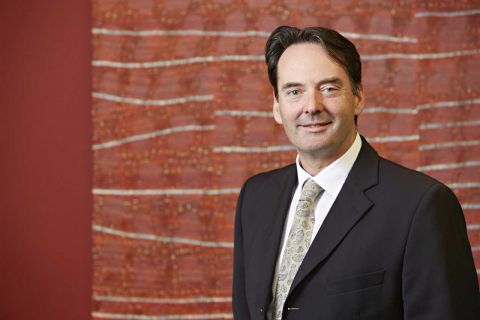Australian study clears way to growing replacement body organs

A discovery by Australian scientists promises to pave the way to producing replacement organs for damaged hearts, kidneys and bowels, using patients’ own stem cells.
The research, pioneered by a team of scientists led by Professor Peter Currie, Director of the Australian Regenerative Medicine Institute at Monash University (Melbourne), could overcome the severe shortage of donor organs for transplants.
The scientists focused on the zebrafish, a small, fast-growing tropical fish native to Southeast Asia, which is used widely as a model for human biology.
They found that a protein called Meox1, active in stem cells, is central to directing muscle growth. The ground-breaking results have been published in the latest edition of the prestigious journal, Cell Stem Cell.
Scientists world-wide have long been growing miniature organs in petri dishes, using them to better understand disease and natural self-repair mechanisms in the body, and for drug testing. Monash University has been at the forefront of these fields.
“But we have known almost nothing about how organs grow in the living animal – the cellular basis of how stem cells make all that tissue,” said Professor Currie. “If we’re ever going to grow complete organs in the laboratory or directly in a patient’s body, we have to know how to grow them properly.
“My lab is exploring one of last frontiers of developmental biology – how organ growth is regulated by stem cells.
“Prior to our work in this field, we didn’t even know that these growth-specific stem cells existed or how they were used. Just knowing that they exist leads us to the possibility of orchestrating them, controlling them or reactivating them to regrow damaged tissue.”
Professor Currie cautions that while this stem cell discovery represents a significant advance in knowledge, the timeline for producing replacement organs in the laboratory remains unknown, though closer now to science fact than fiction.
Cell Stem Cell paper available online here.
For more information on Professor Peter Currie and his team at ARMI please visit their page.
Contact Information
Professor Peter Currie
ARMI Director and group Leader
Phone: +61 414 138 005
Email: peter.currie@monash.edu
Mr Silvio Tiziani
Chief Operating Officer, ARMI
Phone: +61 (0)3 9902 9603
Mobile: +61 (0)4 1853 6209
Email: silvio.tiziani@monash.edu
Notes to Editors About ARMI
The Australian Regenerative Medicine Institute (ARMI) is dedicated to unlocking the regenerative capabilities of the human body. ARMI is a medical research centre based at the Clayton Campus of Monash University. With a total of 18 research groups studying a variety of regenerative approaches, ARMI is one of the largest regenerative medicine and stem cell research hubs in the world.
